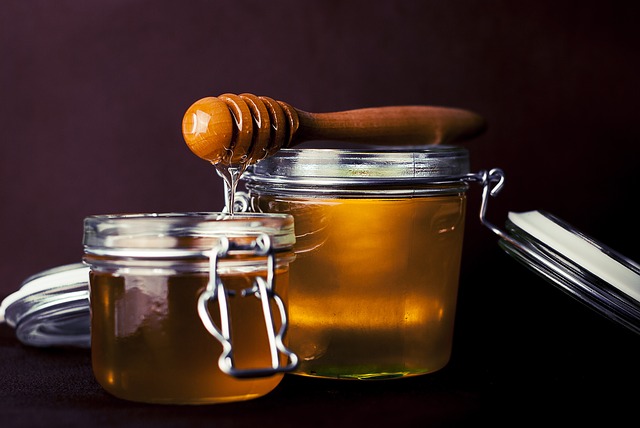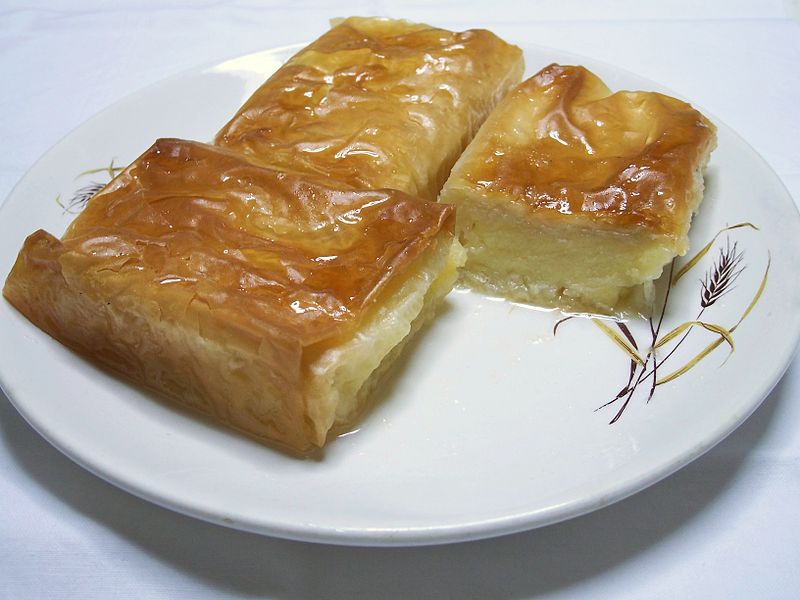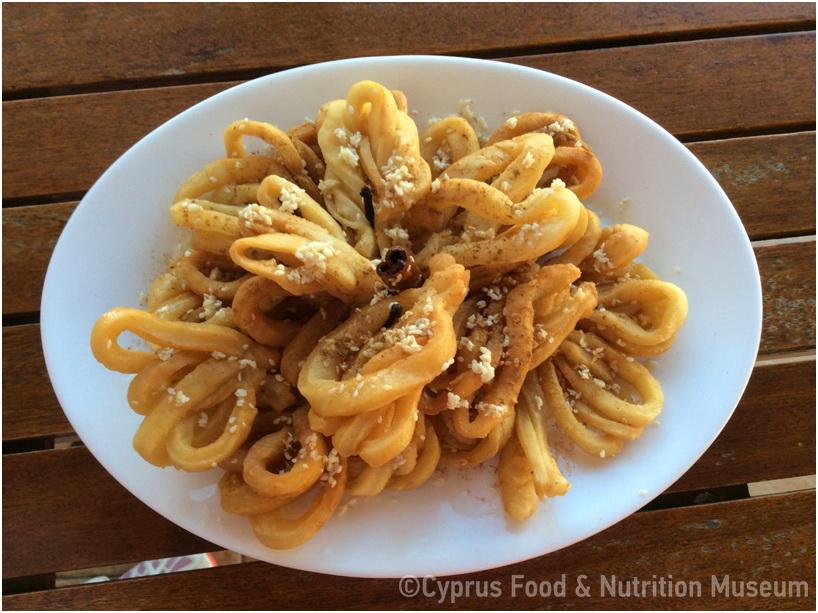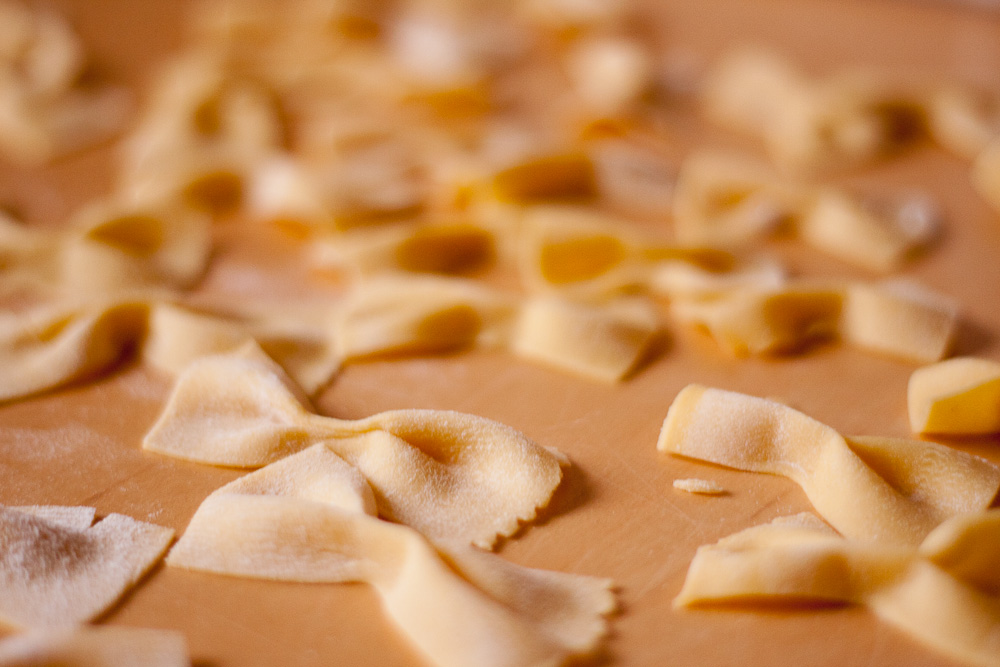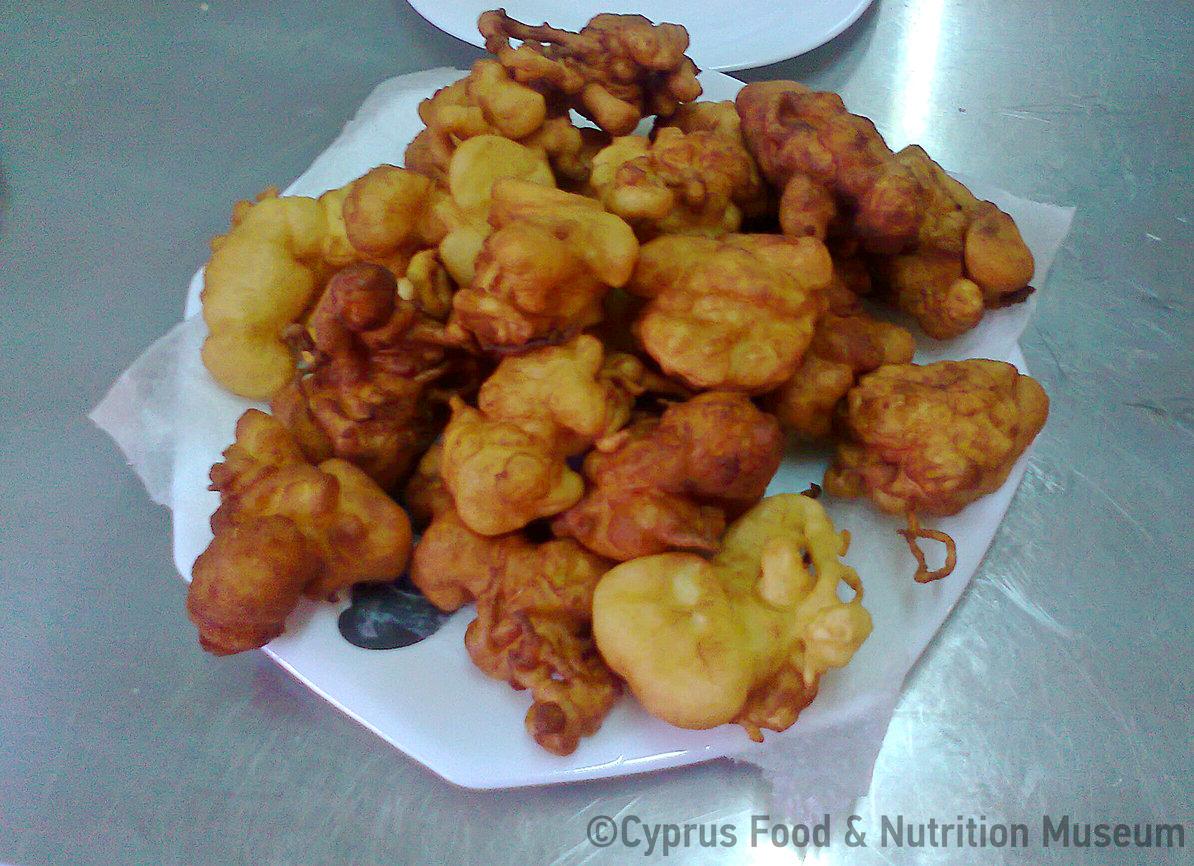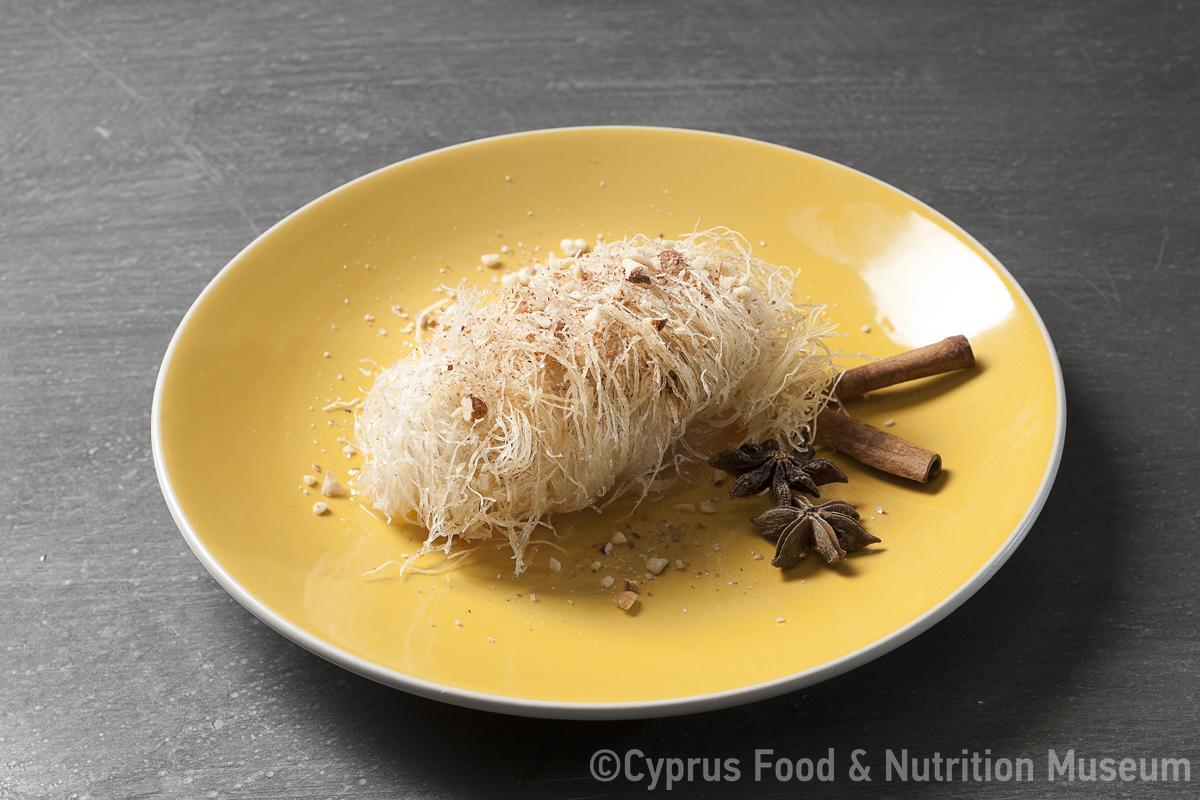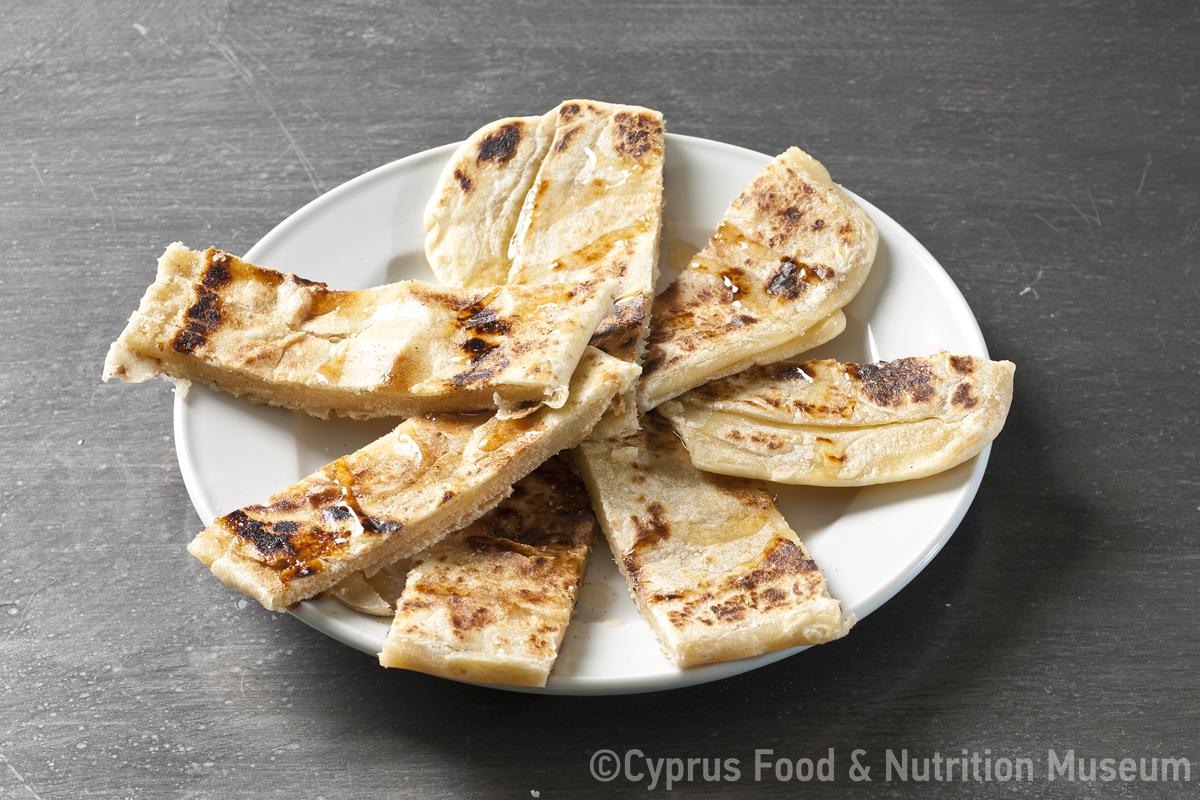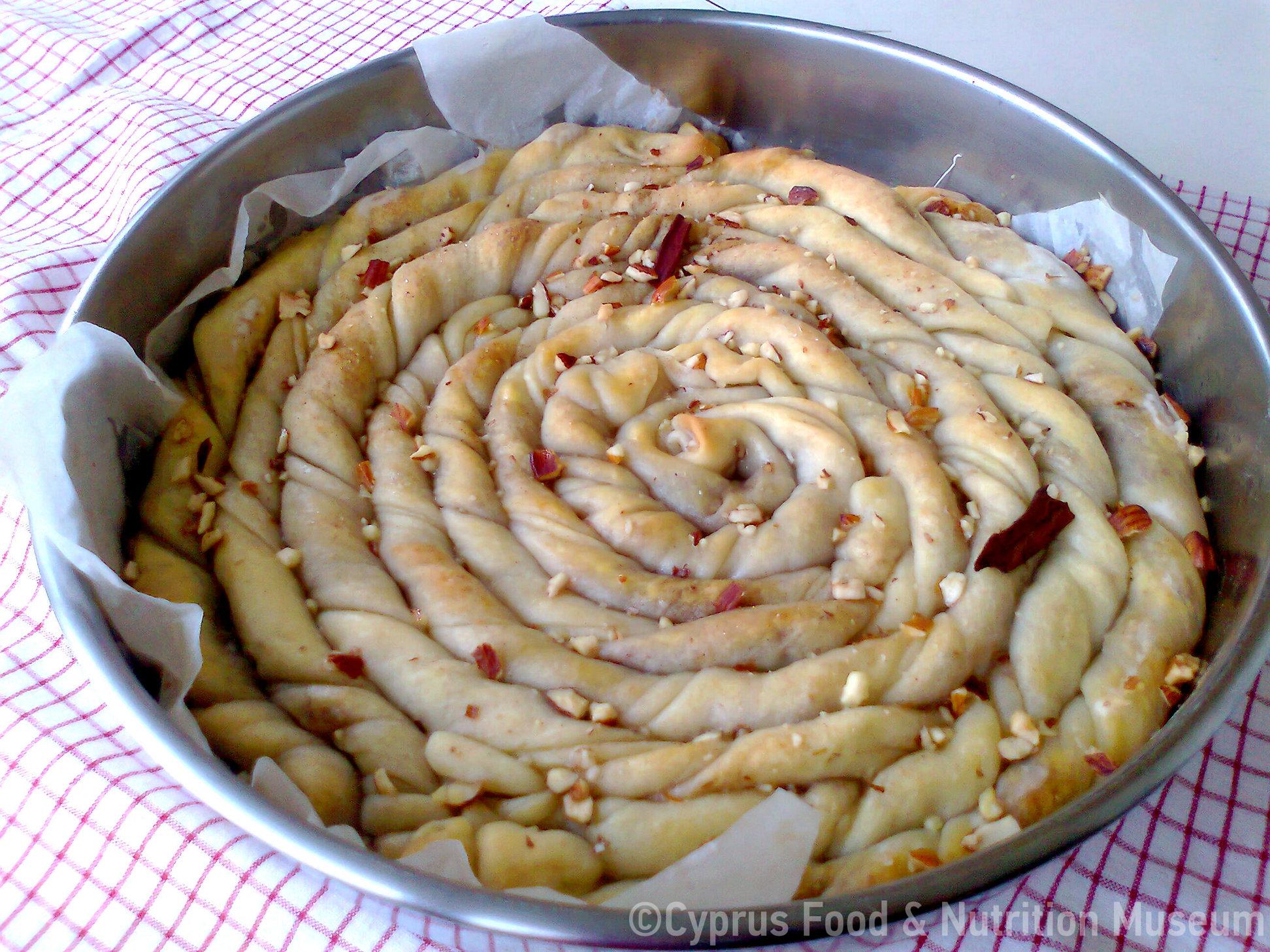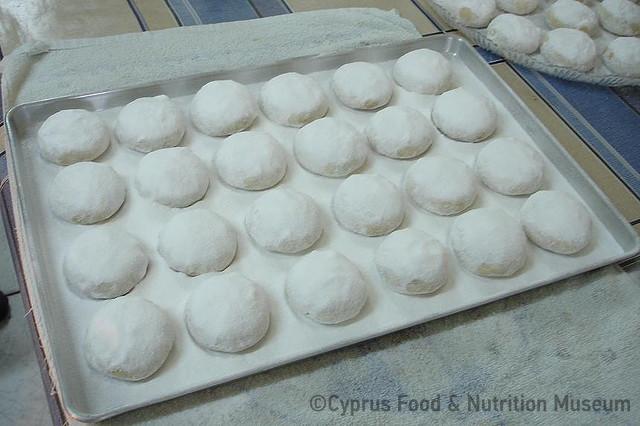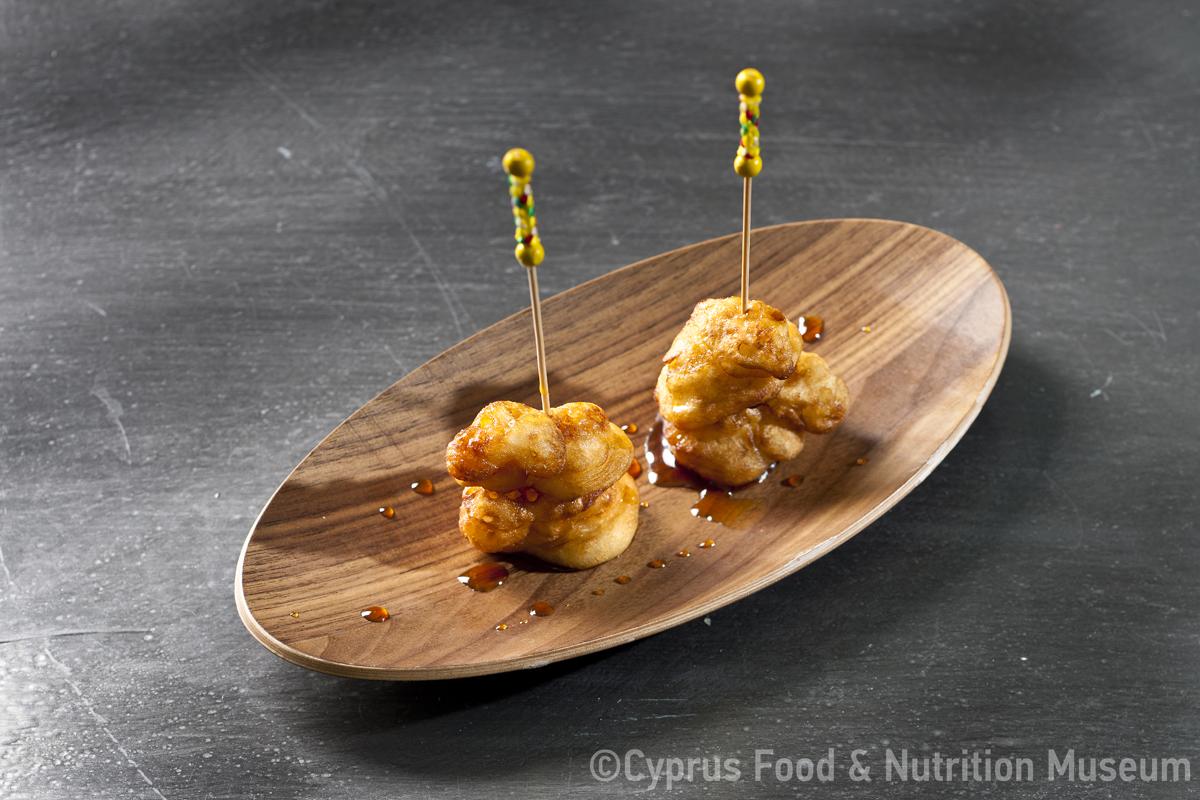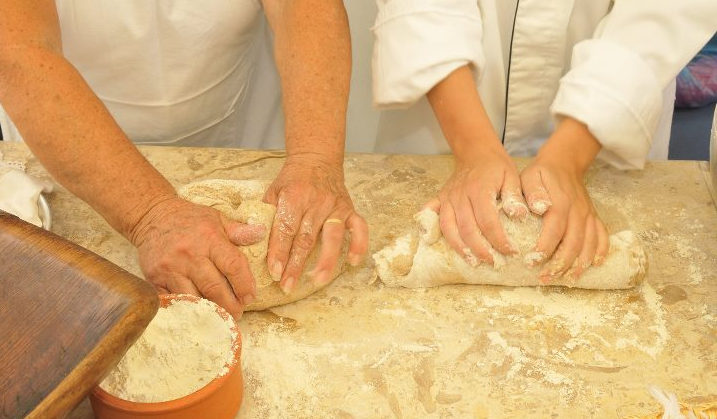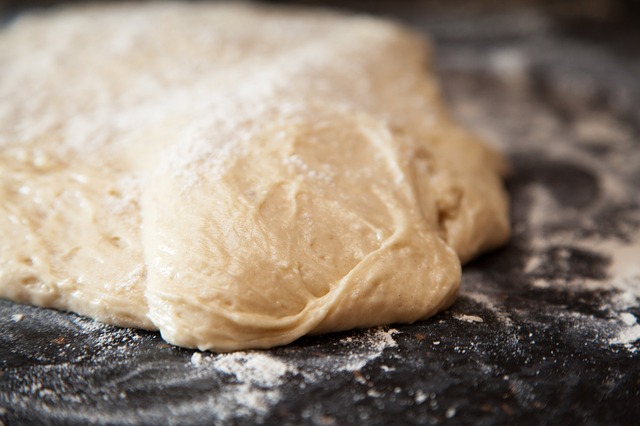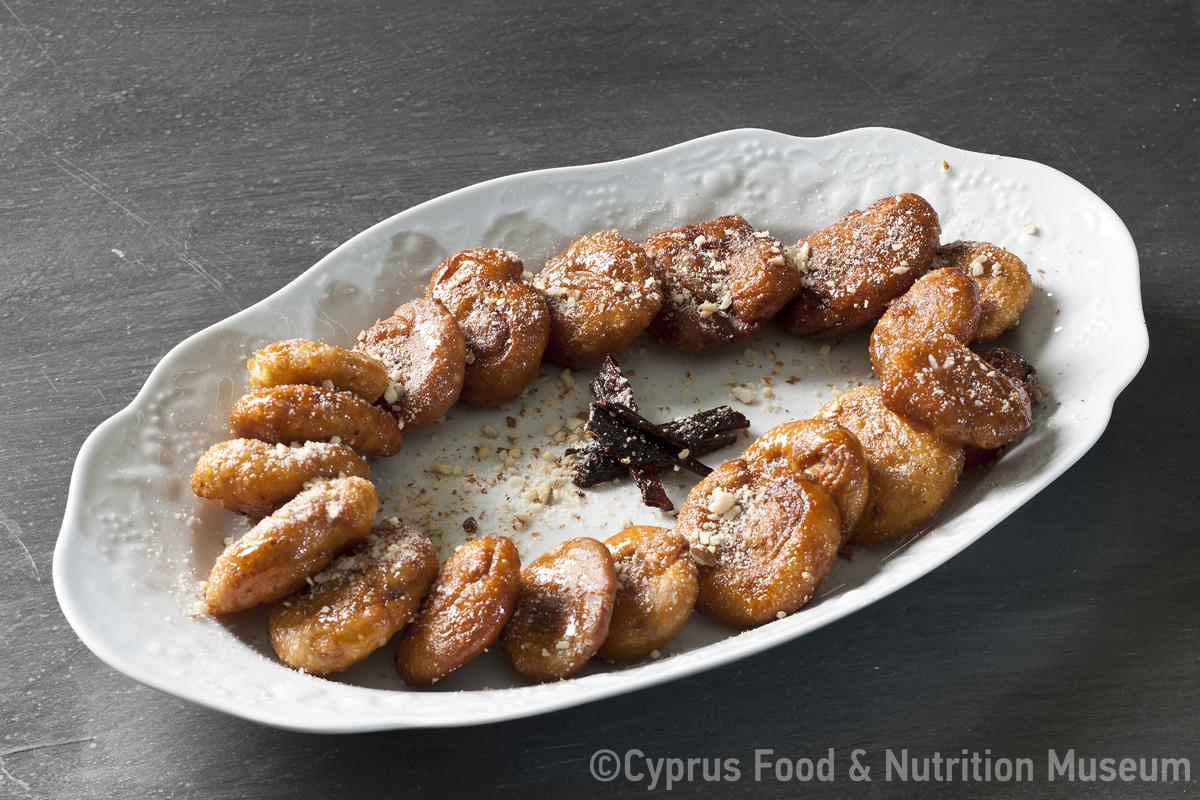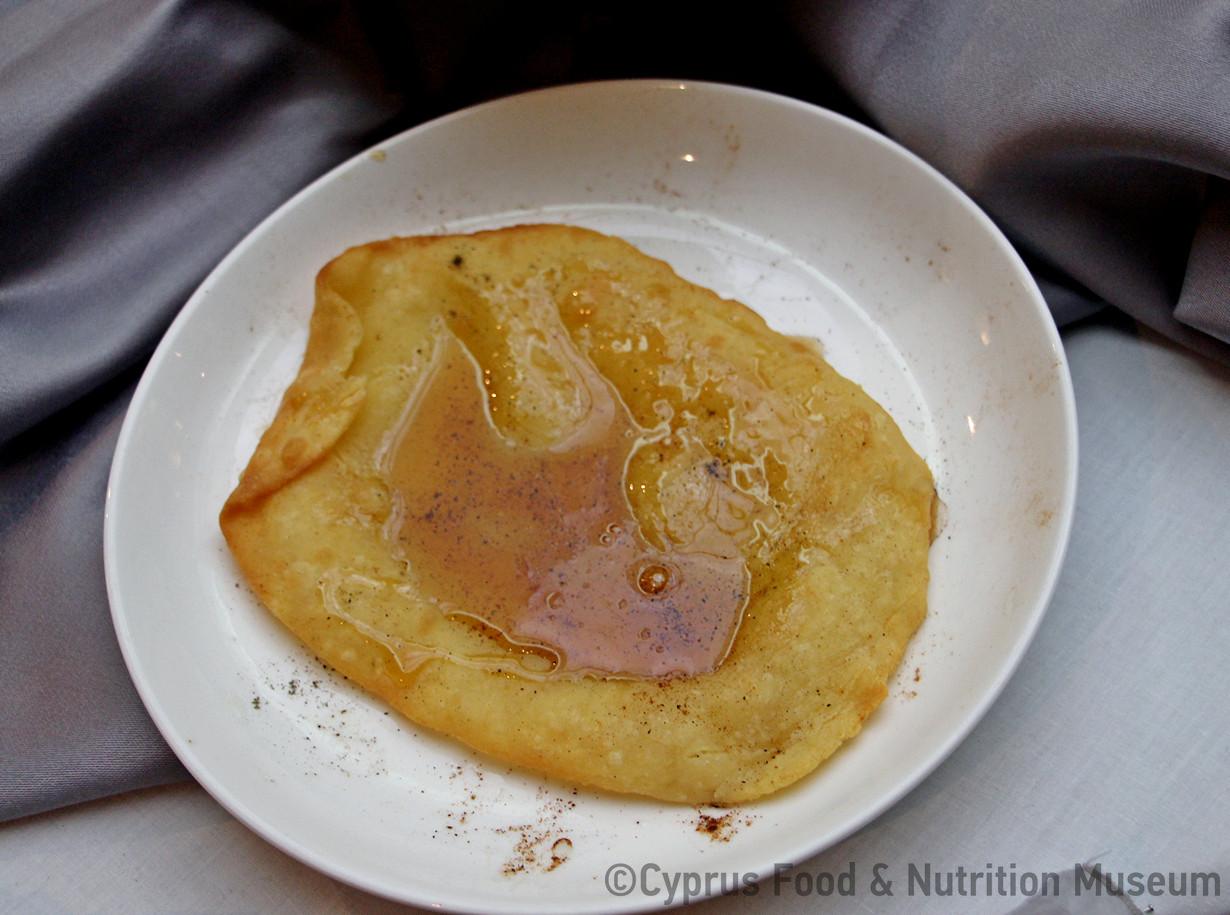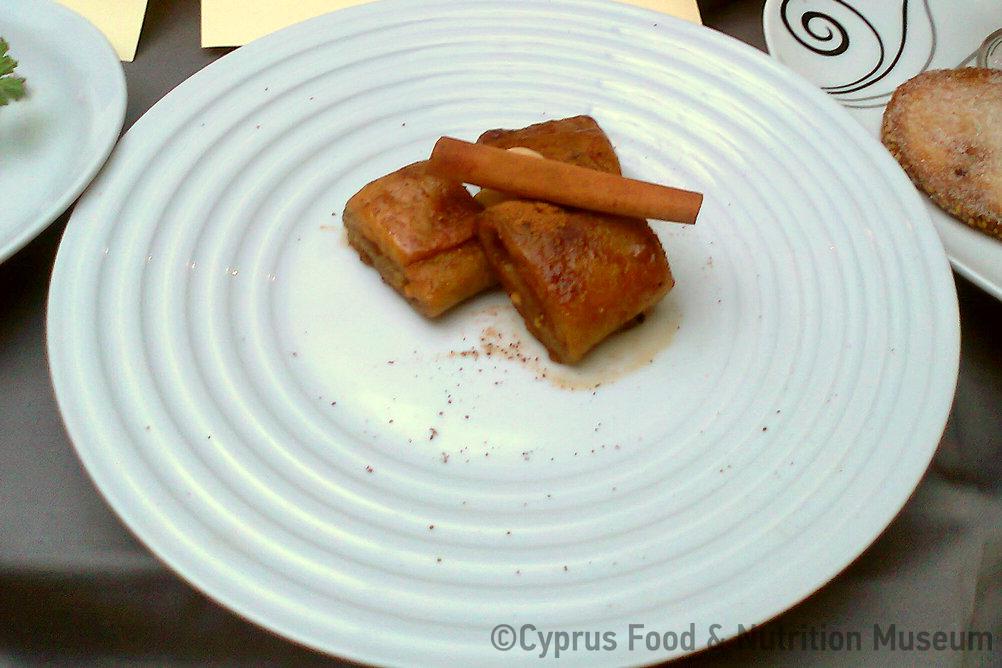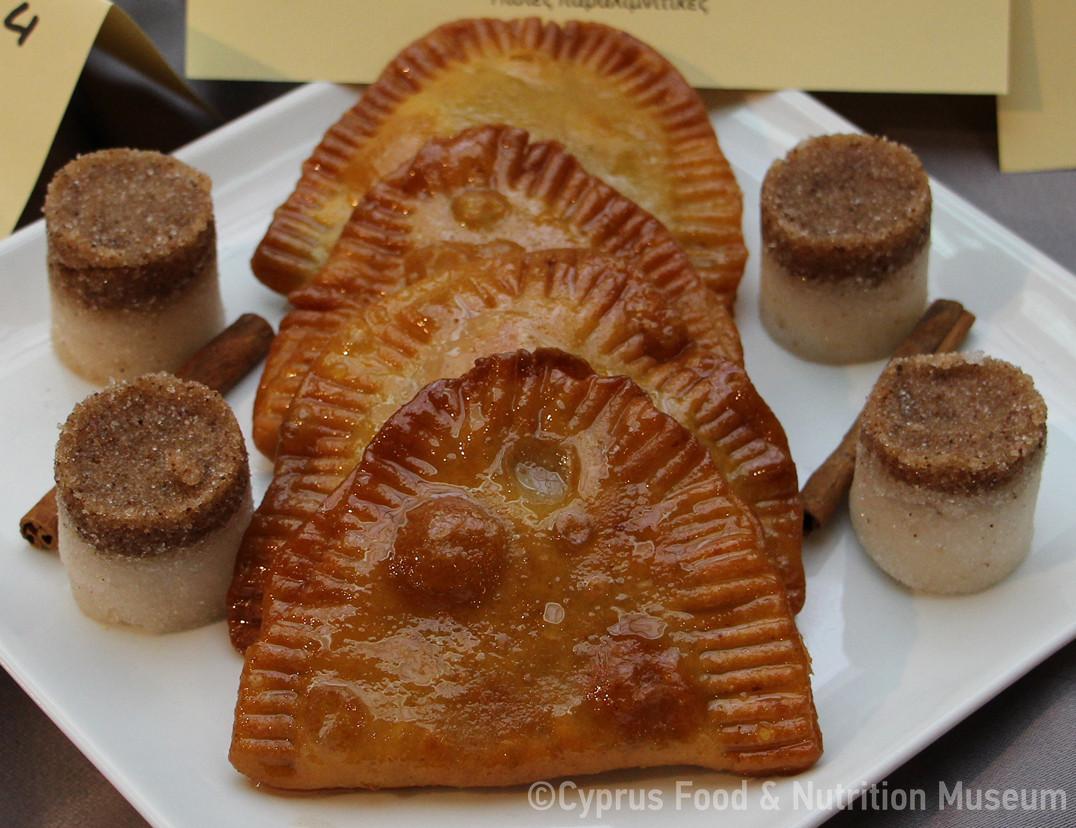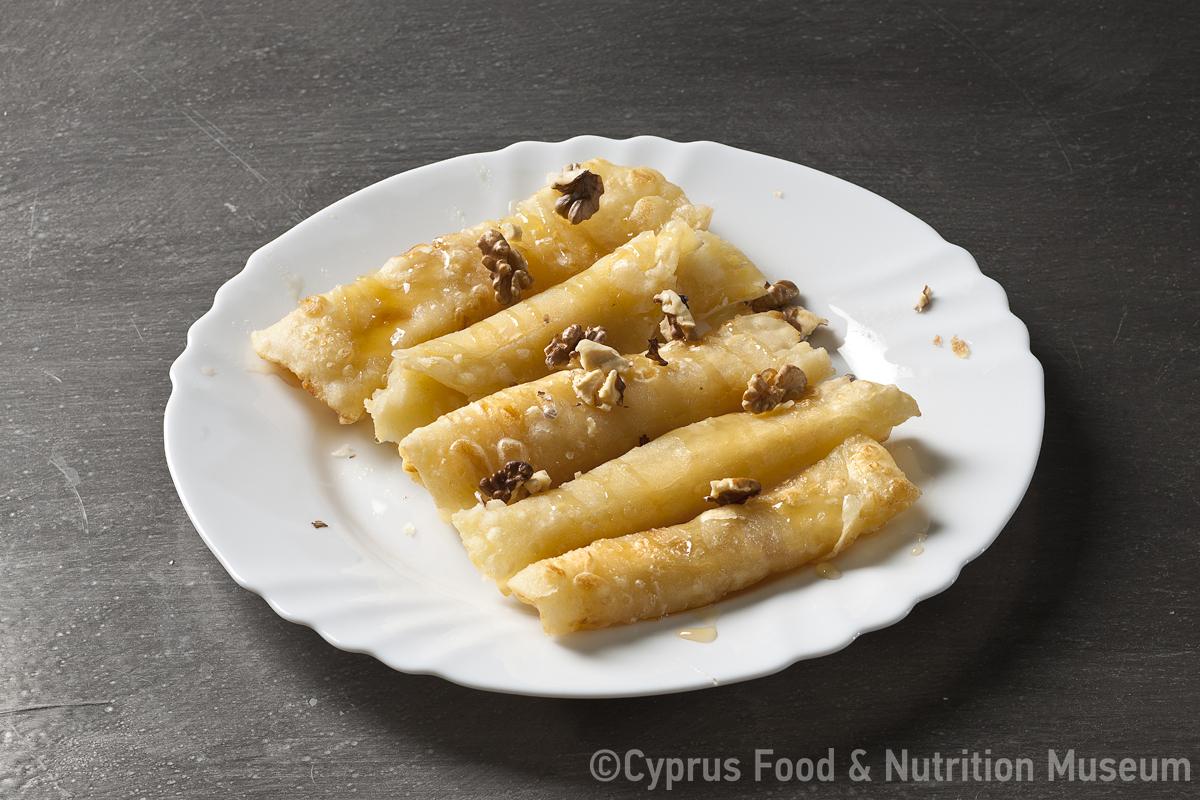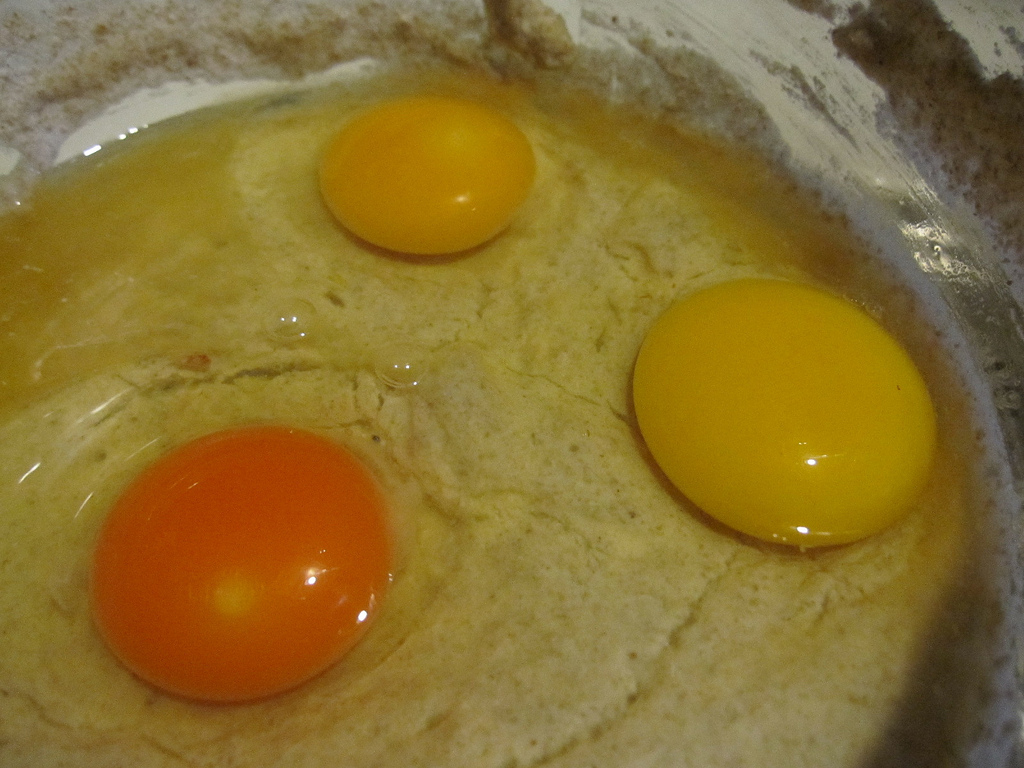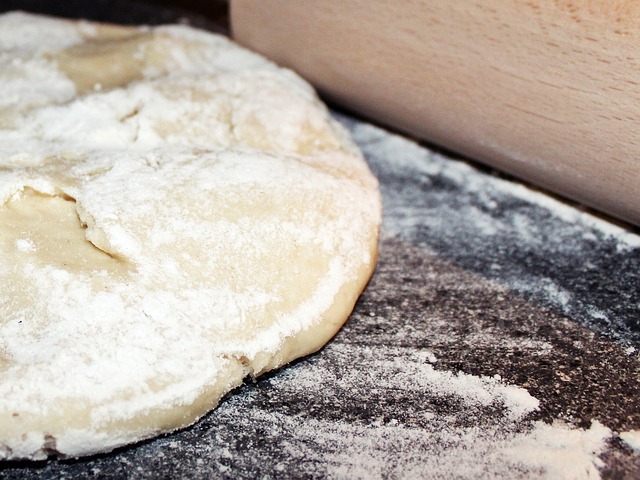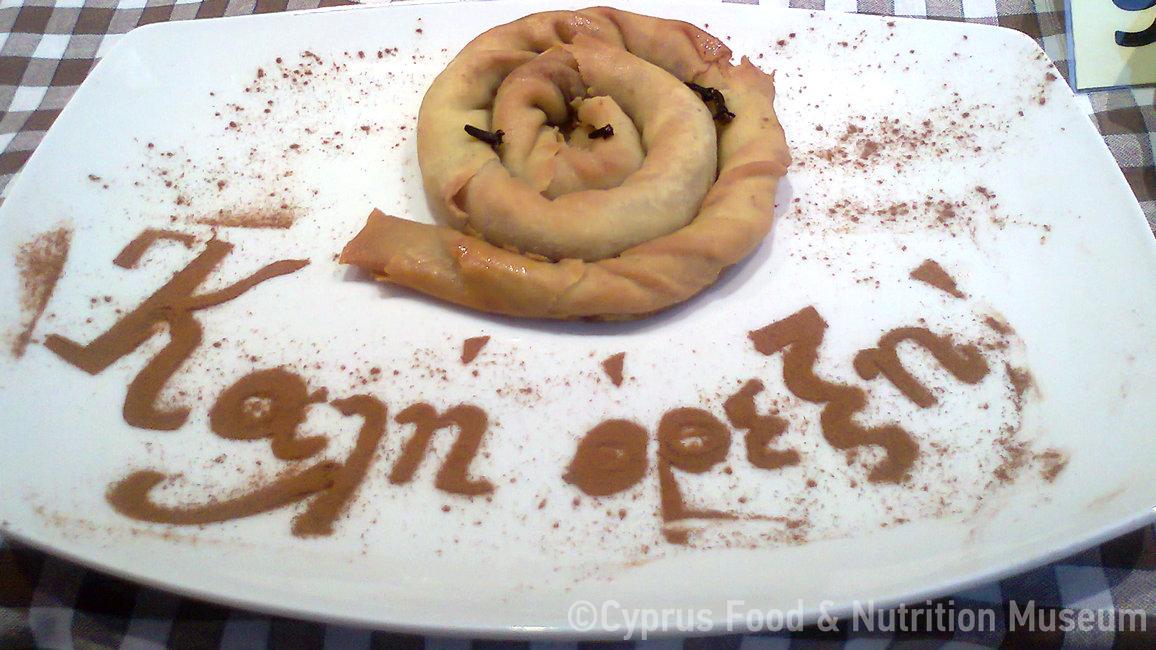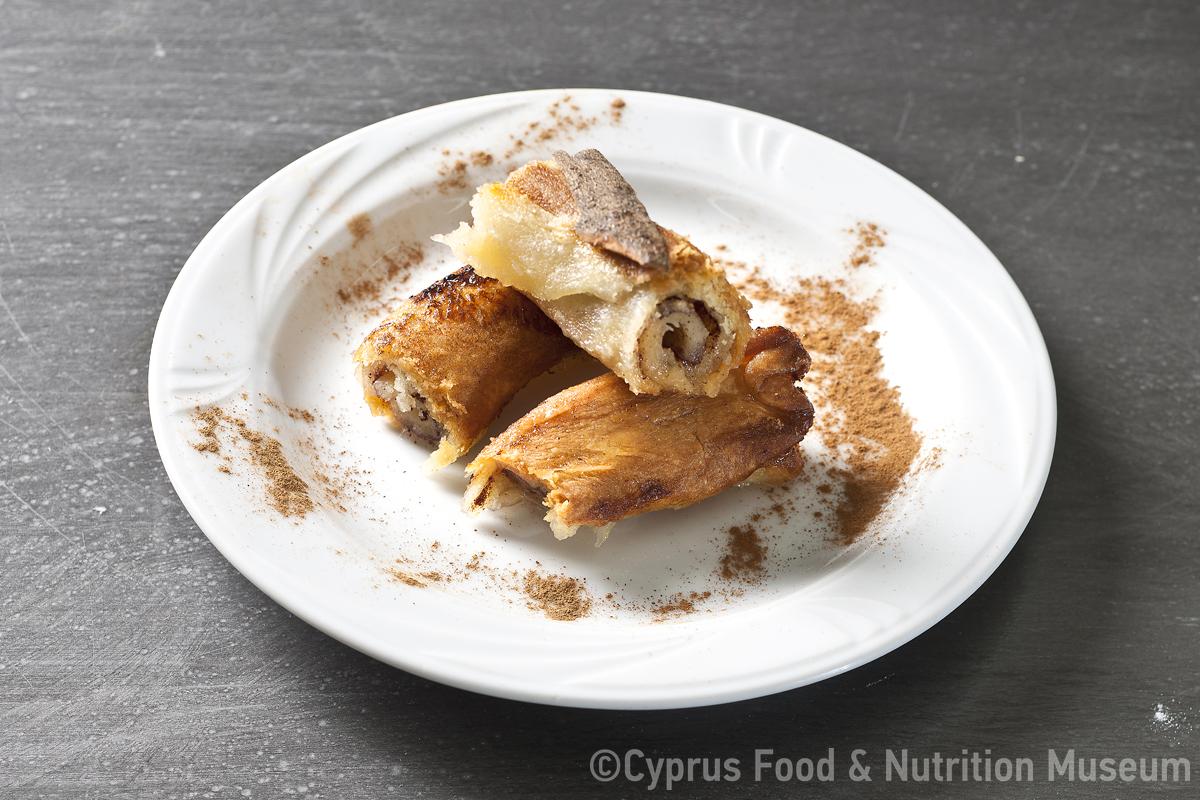In the old days, when there was a wedding, the bride's mother and maid of honour would make pishíes to treat the guests who would come to congratulate the couple.
Name - Recipe
Pishíes are sweet, fried small pittas. They represent the traditional pancakes of Cyprus.
For the dough:
1 kg flour
3 glasses of water
1/3 cup peanut oil
1 tsp salt
2 cups of water
For the filling:
3 cups of sugar
1-2 cups olive oil
Cinnamon
For the syrup:
2 glasses of water
3 glasses of sugar
For the frying:
Peanut oil
For sprinkling:
1/4 kg of coarsely ground almonds
Prepare the dough: In a bowl, sift the flour, dd the oil and rub them together with your fingertips. Add the salt and lukewarm water and knead. Shape into a ball and wrap in nylon so as not to dry out. Leave it to rest for an hour. Prepare the syrup: In a pot, add the water and sugar and bring to a boil. After 5 minutes remove form heat and leave aside to cool. Roll out the dough to form a pastry sheet. Brush with olive oil and sprinkle with sugar and cinnamon. Roll the dough to form a long roll and cut in pieces. Take each piece, twist it and press it with the rolling pin or the palm of your hand. Fry them in hot oil and when they are golden, remove them and dip them in the cold syrup for 2 minutes. Transfer them to a platter, sprinkle with ground almonds and serve, (Marina Kattou, 65 years old from Vouni, Limassol)
Boiling.
Frying.
Dipping in syrup.
Functional and symbolic role
In the past, this used to be one of the common desserts.
In the old days, pishíes were offered to the guests at weddings. “When there was a wedding, the bride's mother and maid of honour would make pishíes to treat the guests who would come to congratulate the couple. In the old days, the wedding lasted for three whole days. Pishíes were served on Monday after the wedding.” (Marina Kattou, 65 years old from Vouni Limassol)
When they were to be offered at weddings, they were made as sweet as possible, so that the life of the newlyweds would be sweet. "My great-grandmother Eleni used to tell me that they would make them as sweet as possible because they believed that the newlyweds' lives would be as sweet as the pishíes." (Marina Kattou, 65 years old from Vouni Limassol)
Additional information and bibliography
Extract from an interview with Ms Marina Kattou:
"Question: Did you make any changes-modifications to the recipe (ingredients, ratio of ingredients, method of preparation, method of storage, method or means of baking)? Answer: No, I did not change the recipe. In the old days, they used to be a bit bigger. Now I may not make them as sweet, or not dip them in syrup because some people who come to visit have diabetes and won't eat them. When my grandchildren visit, I follow the recipe because they prefer them syrupy. In the old days, we used a big basin for kneading because we had to make large quantities. Now we knead in a bowl. In the old days we didn't have gas. We used to put two big stones and wood between them and put the pan or the pot on top and fry the pishíes.
Question: Is it a local recipe, where do they make it? Answer: We make it in Vouni, but they make it in other villages in the mountains as well.
Question: How often do you make it now? Answer: I always do them when I have dough which is left over after making olive pies, pourekkia and other savoury things. And especially during fasting because they are suitable for fasting. Oh, and when my grandchildren come to the village and ask for them...
Question: How often did you make them before? Answer: Two to three times a month or so. They used to be our dessert as we did not have much of a variety of sweets to treat our guests. It was an easy and inexpensive recipe, so we used to make it more often. Nowadays, people are used to eating crisps and chocolates and they don't like grandma's pishíes. Fortunately my grandchildren still ask for them." (Marina Kattou, 65 years old from Vouni, Limassol)
Oral testimony: Marina Kattou, 65 years old from Vouni Limassol. Recording: Zenovia Charalambous, October 2010. Edited by Stalo Lazarou.
Zenovia Charalambous, Stalo Lazarou
